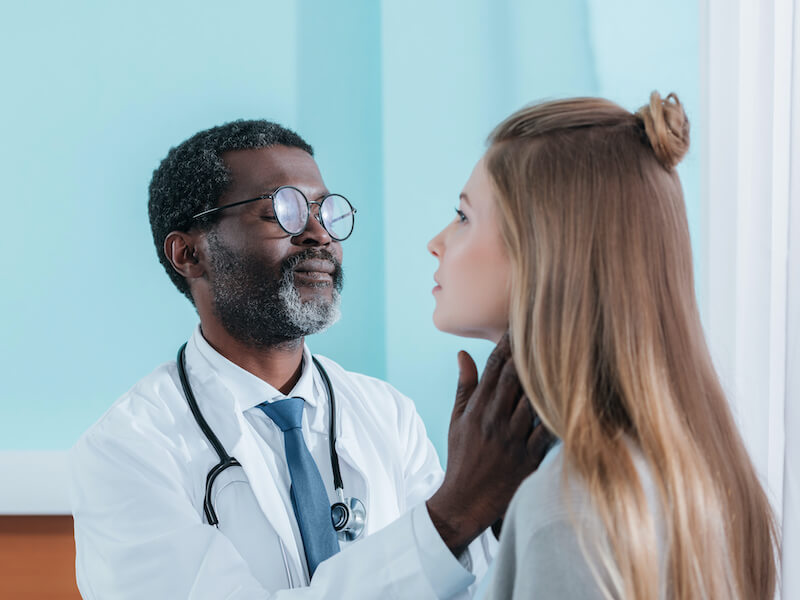
Every year over 50,000 individuals are diagnosed with oral cancer (oropharyngeal cancer). And regrettably, oral cancers have a fairly high mortality rate. Most of these individuals are 60 or older old, but not all.
The mortality rate is not caused by oral cancer being especially aggressive. Alternatively, these cancers are frequently challenging to treat because they’re not evident. Oral cancer, much like most cancers, becomes harder to manage when it reaches advanced stages and this is when it’s usually detected.
Oral cancer is normally quite treatable when discovered early. That’s why one of the smartest things you can do is watch out for early indications of oral cancer.
What are some early signs of oral cancer?
The best way to diagnose the early signs of oral cancer is to schedule an appointment with us. We will be able to screen for possible symptoms or presentations of a variety of cancer types.
There are some early warning signs you can watch for between visits. Here are some of the most common early signs of oral cancer:
- Patches of white or red tissues in the mouth. The white tissue is called leukoplakia and the red tissue is called erythroplakia. In some cases, these patches could be an early indication of cancer, but in most scenarios, it’s nothing to be concerned about.
- Difficulty moving your jaw, including when you’re speaking or chewing.
- Loose teeth. You should consult a doctor if you are noticing loose teeth which are not related to hygiene or dental concerns (check with your dentist).
- Tingling, numbness, or loss of sensation in the lower lip.
- Trouble swallowing.
You should also get a consultation if you feel like you have something stuck in your throat (like a growth), particularly if this feeling is consistent.
What happens at an oral cancer screening?
We will take a good look around your mouth and pay particular attention to any red or white patches. The lesions that can appear from these patches can also turned out to be cancerous.
In most situations, a visual examination will be sufficient. But if we find some tissue that is suspect, we might need to do a biopsy.
How can I stay healthy?
Cancer is more common when there is:
- Poor nutrition. Some evidence indicates that having fruits and vegetables in your diet can decrease your risk of developing cancer.
- Tobacco use. A wide variety of cancers, including oral cancer, will be more likely if you use tobacco products.
- Excessive drinking. Alcohol has been connected to cancer. Your risk of cancer will be lowered if you restrict your use of alcohol, especially when combined with tobacco.
- Family history. If you have a family history of oral cancers, your risks are going to be elevated.
Your exposure to the sun should be limited: Your danger of lip and skin cancer will increase with too much exposure to the sun.
Regular screenings are essential
Scheduling an appointment with us is the best way you can decrease your risk of oral cancer. You will have a better chance of catching oral cancer early and before it becomes too advanced or spreads. This can significantly better your prognosis.